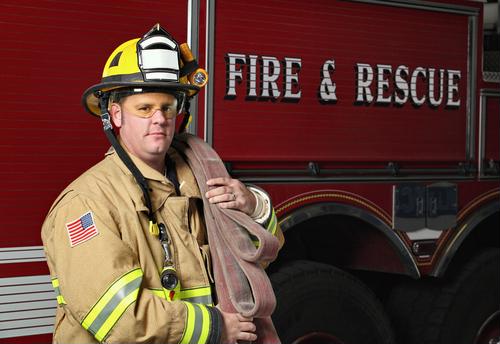The Rich Rewards: Benefits of Being a Volunteer Firefighter
In communities around the world, the unsung heroes known as volunteer firefighters play a pivotal role in ensuring the safety and well-being of residents. Their commitment to public service goes beyond the call of duty, making them integral contributors to emergency response and community resilience.
Community Impact of Volunteer Firefighters
Volunteer firefighters are the backbone of local safety initiatives, significantly impacting the communities they serve. Their rapid response to emergencies, whether fires, accidents, or natural disasters, helps mitigate risks and minimize damage. This section explores the profound influence volunteer firefighters have on creating a safer, more secure community environment. From fire prevention programs to immediate responses during crises, their contributions resonate throughout the neighborhoods they protect.

Professional Development for Volunteer Firefighters
Contrary to popular belief, the benefits of being a volunteer firefighter extend beyond acts of heroism. This section delves into the professional development opportunities that arise from volunteering in this critical role. Volunteer firefighters acquire a diverse skill set, from mastering advanced firefighting techniques to gaining leadership and decision-making abilities. The experiences garnered during emergency responses become valuable assets, fostering personal and professional growth that goes far beyond the realm of firefighting.
Camaraderie and Teamwork
One of the unique aspects of volunteer firefighting is the strong sense of camaraderie and teamwork that develops among firefighters. This camaraderie is not only essential for the efficient functioning of a firefighting team but also contributes to a supportive and tight-knit community. This section explores how the collaborative spirit among volunteer firefighters enhances their effectiveness in emergencies and creates lasting bonds that extend beyond the fire station.
Emotional and Psychological Rewards
While volunteer firefighters are lauded for their physical bravery, this section sheds light on the often overlooked emotional and psychological benefits they derive from their service. Engaging in meaningful, purpose-driven work contributes to a sense of fulfillment, positively impacting mental well-being. The emotional rewards garnered from helping others during challenging times create a resilient mindset, showcasing the intricate connection between volunteer firefighting and mental wellness.
Flexibility in Volunteer Firefighting
Volunteer firefighting offers a unique flexibility that accommodates individuals balancing heroism with everyday responsibilities. This section explores how volunteer firefighters manage their commitment alongside work, family, and personal pursuits. The adaptable nature of volunteer firefighting allows individuals to serve their communities without sacrificing the equilibrium of their daily lives, fostering a harmonious balance between their heroic duties and personal responsibilities.
Recognition and Appreciation
Despite their indispensable contributions, volunteer firefighters often work behind the scenes. This section emphasizes the importance of recognizing and appreciating these dedicated individuals. Public acknowledgment, community support, and expressions of gratitude contribute to the morale of volunteer firefighters. Recognizing their efforts not only boosts their spirits but also encourages others to consider volunteering, further strengthening the fabric of community safety.
Training and Skill Enhancement
Volunteer firefighters undergo rigorous training programs to enhance their skills continuously. This section details the various training opportunities available to them, covering topics such as advanced firefighting techniques, emergency medical response, and evolving safety protocols. The commitment to ongoing education ensures that volunteer firefighters remain at the forefront of their field, equipped with the latest knowledge and techniques to handle diverse emergencies effectively.
Balancing Risks and Rewards
Volunteer firefighting inherently involves risks, and this section explores how individuals navigate this fine line. By understanding the potential risks associated with firefighting and implementing strict safety measures, volunteer firefighters strike a balance between the inherent dangers of their role and the rewarding aspects of serving their communities. Addressing safety concerns and promoting risk awareness reflects the responsible and conscientious approach taken by volunteer firefighters.
Frequently Asked Questions (FAQs) About Volunteer Firefighting
Q: Can anyone become a volunteer firefighter?
A: Yes, most volunteer fire departments welcome individuals with diverse backgrounds and skill sets.
Q: What kind of training do volunteer firefighters receive?
A: Training varies but often includes firefighting techniques, emergency medical response, and ongoing skill development.
Q: Is volunteer firefighting only for young, physically fit individuals?
A: No, volunteer fire departments value individuals of all ages and physical abilities, each contributing uniquely to the team.
Q: How much time commitment is required for volunteer firefighting?
A: Time commitment varies, but many volunteer firefighters balance their roles with other responsibilities successfully.
Q: Are volunteer firefighters paid for their services?
A: While some departments provide stipends or incentives, many volunteer firefighters serve without monetary compensation.
Q: How can communities show appreciation for volunteer firefighters?
A: Communities can express gratitude through public recognition, events, and fostering a supportive environment.
Q: Are there opportunities for advancement in volunteer firefighting?
A: Yes, volunteer firefighters can advance through additional training and by taking on leadership roles within the department.
Q: Can volunteer firefighting lead to a career in professional firefighting?
A: Absolutely, many professional firefighters started as volunteers, using their experience as a stepping stone to a firefighting career.
Conclusion:
In conclusion, the benefits of being a volunteer firefighter extend far beyond the immediate moments of heroism. From the profound impact on local communities to the personal growth and fulfillment experienced by volunteers, this noble pursuit leaves an enduring mark. Volunteer firefighters exemplify the spirit of selflessness, community service, and resilience, showcasing that the rewards of this vital role ripple through both the individual and the community they serve.




